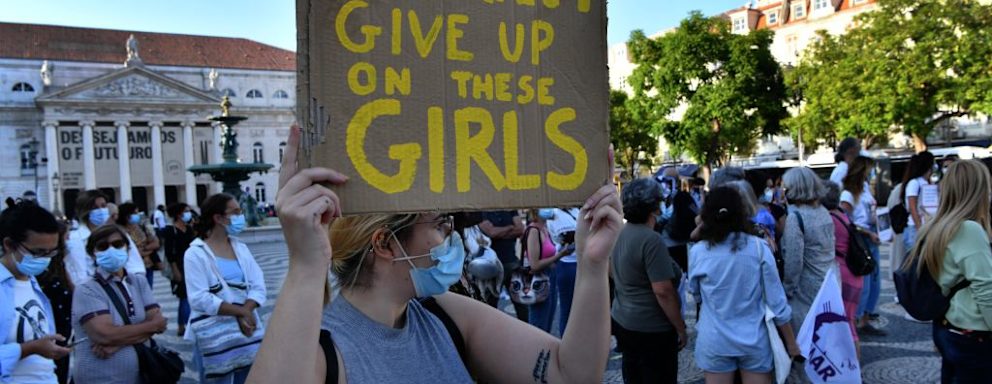How Colleges Are Aiding Afghan Refugees — and How They Can Do More
 Credit: showqdf
Credit: showqdf- A handful of schools are providing shelter and scholarships for Afghan refugees.
- Schools aiding Afghan refugees continue a higher education legacy of assisting refugees.
- College can be life-changing, but displaced students face big hurdles to getting an education.
U.S. colleges and universities have stepped up to offer shelter and scholarships for thousands of Afghan refugees arriving in the country following the rapid withdrawal of American armed forces from Afghanistan and the subsequent Taliban takeover.
The University of Tulsa was the first school to extend aid to Afghan students, offering two scholarships to Afghan refugees. University President Brad Carson urged other colleges to follow their lead: “We challenge other organizations to consider similar support for the Afghan people.”
Vermont’s Goddard College subsequently announced it would be willing to house Afghan refugees on its campus, and New York’s Bard College said it could house as many as 100 refugee students from the American University of Afghanistan.
In Connecticut, Goodwin University and the University of Bridgeport will offer housing, language education, and vocational training for Afghan refugees. Northern Virginia Community College housed hundreds of refugees and is operating as a “transfer point” before they’re moved to new locations.
Meanwhile, groups from the University of California, Berkeley, have partnered with San Jose State University’s Human Rights Institute to crowdfund $250,000 in emergency support for Afghan refugees.
As individual colleges ramp up aid to support Afghan refugees, a coalition of college leaders has teamed up with the Biden administration to aid all refugees seeking to enroll in U.S. colleges. The Presidents’ Alliance on Higher Education and Immigration has put forward plans to build out a sponsorship program within the U.S. Refugee Admissions Program that would enable refugee students to come to the U.S., enroll at participating colleges, and obtain legal permanent residence.
The initiative would require cooperation from the federal government, colleges, private donors, and potentially the United Nations, and is modeled after a similar program in Canada.
According to the plan, 10 participating colleges would enroll upwards of 30 students over the first two years. Within five years, the number would increase to more than 500. Participating students would be part of a national cohort that receives not only a college education but financial, social, and logistical support from their school.
Colleges Are Well-Positioned to Help Refugees
A growing share of college students in the U.S. hail from immigrant families. In 2000, 20% of all college students were first-generation Americans. Twenty years later, nearly 30% of college students were first-generation learners.
This swelling student population includes many children of refugees, yet college acceptance rates for refugees have plummeted. U.S. acceptance rates for refugees have fallen from 200,000 in 1980 to less than 50,000 in 2019. Refugees have a harder time getting to college than their children.
Acknowledging the steep barriers to higher education refugees face, certain colleges, community colleges, and education organizations have a tradition of supporting students living as refugees or asylum-seekers. These established programs, processes, and partnerships can be jump started to assist Afghan refugees.
Many community colleges and college training programs already offer specialized support and education for refugees, while student groups across the country promote access for refugees. On most campuses, considerable resources exist to aid international students of any status.
Several scholarships are available to refugee students, some international, some national, some for certain areas and schools. Refugees in Utah or Idaho can apply for financial aid from One Refugee. Refugees in the Cincinnati area can apply for the RefugeeConnect Student Scholarship.
Columbia University offers up to a full-ride Scholarship for Displaced Students for students hailing from anywhere in the world to complete their interrupted undergraduate or graduate degree at Columbia. The university awards up to 30 scholarships each year, and $6 million per cohort.
Refugees who wish to attend Syracuse University, Champlain College, or Wheaton College are also eligible for scholarships. The online, tuition-free University of the People offers two scholarships to refugees: The Emergency Refugee Assistance Scholarship and the Small Giants Scholarship.
Grants are also available for displaced academics. The Institute of International Education’s Scholar Rescue Fund organizes and funds year-long fellowships for displaced scholars worldwide. The $25,000 fellowships support temporary academic positions.
Schools and nonprofits also mobilize around specific groups of students forced to flee their home countries. In recent years, the Institute of International Education (IIE) organized the IIE Syria Consortium to provide full tuition scholarships to Syrian undergraduates. Now, the IIE Afghanistan Crisis Response will help support displaced Afghan students.
Barriers to Higher Education Persist for Refugees
Access to higher education expands individual career prospects for refugees, and, more broadly, enables them to support their families and communities as they rebuild their lives in America. But barriers to higher education for refugees persist.
Whether they are officially recognized as refugees by the United States or the United Nations, hold green cards, or carry F1 or J1 visas, many displaced students lack access to education. United World Colleges estimates that young refugees are five times more likely to be out of school than other children.
Many refugees are severely disadvantaged when it comes to gaining an education — from primary and secondary education to higher education and career training. Students who have fled to the U.S. from their home countries are locked out of most federal and state benefits when it comes to postsecondary education, including financial aid, in-state tuition rates, and even admission.
Like other international students, refugees may struggle to learn if they are not fluent in English. They may also be at a disadvantage when it comes to the nuanced and prolonged college application process. Formal transcripts can be hard for displaced students to provide. However, refugee status also means that official procedures may be flexed, including the documents needed to receive federal student aid.
Feature Image: NurPhoto / Contributor / Getty Images